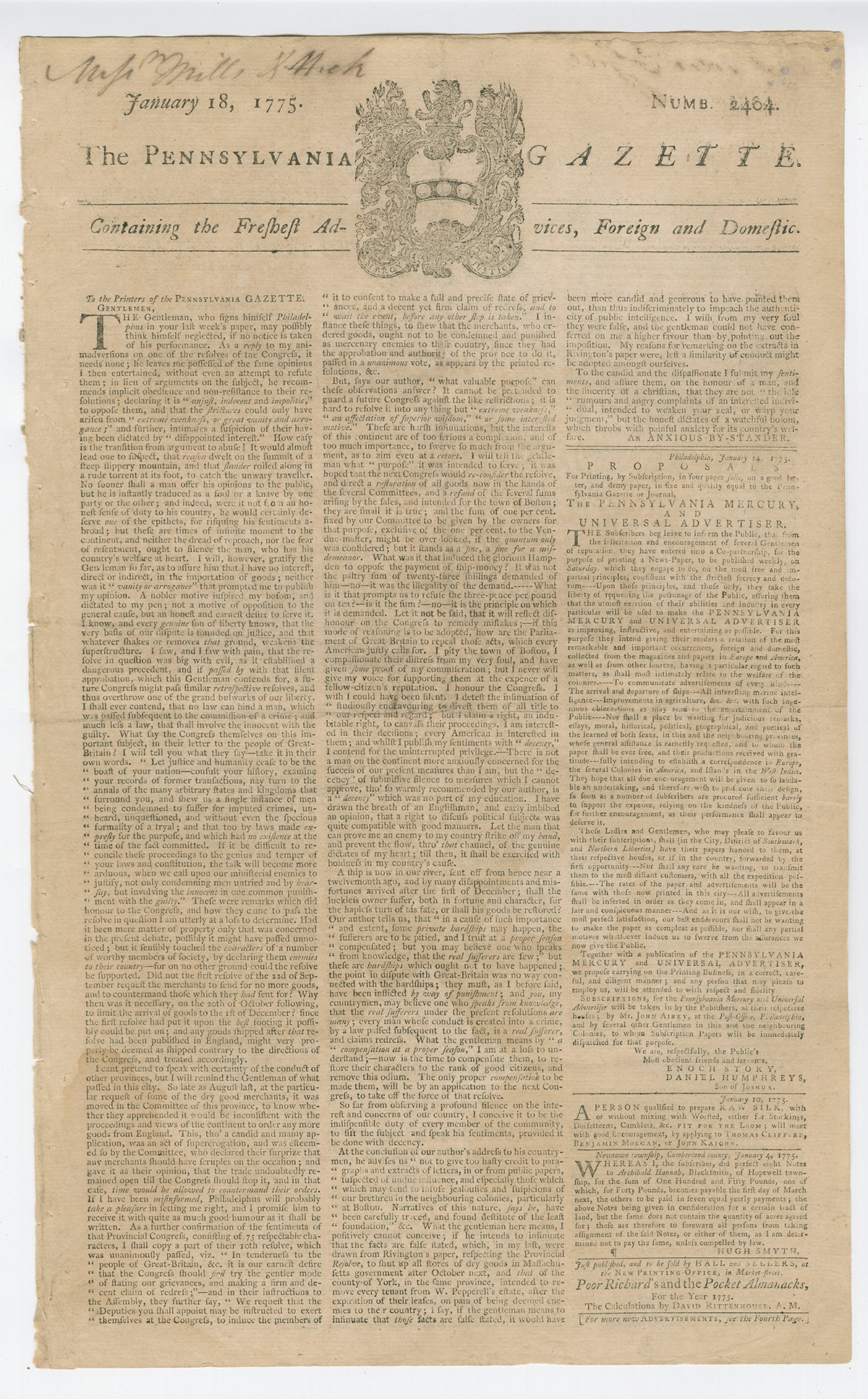About Publications Library Archives
heritagepost.org

Preserving Revolutionary & Civil War History

Preserving Revolutionary & Civil War History

Date:1774
Annotation:
Many members of the Continental Congress blamed the imperial crisis on the acts of malevolent ministers and implored King George to intercede with Parliament and find some means to preserve English liberties in America. In fact, the king was so invested in the imperial policies that he was unable to serve a mediating role in the conflict. It is interesting to contrast the language of this petition with that of the Declaration of Independence, drafted only twenty months later.
Document:
Most Gracious Sovereign,
We your majesty’s faithful subjects…[beg]to lay our grievances before the throne.
A standing army has been kept in these colonies ever since the conclusion of the late war, without the consent of our assemblies; and this army, with a considerable naval armament, has been employed to enforce the collection of taxes;
The authority of the commander in chief, and, under him, of the brigadier general, has in time of peace been rendered supreme in all the civil governments in America.
The commander in chief of your majesty’s forces in North-America has in time of peace been appointed governor of a colony.
The charges of usual officers have been greatly increased, and new, expensive, and oppressive officers have been multiplied.
The judges of the admiralty and vice-admiralty courts are empowered to receive their salaries and fees from the effects condemned by themselves. The officers of the customs are employed to break open and enter houses without the authority of any civil magistrate, founded on legal information.
The judges of courts of common law have been made entirely dependent on one part of the legislature for their salaries, as well as for the duration of their commissions….
Commerce has been burthened with many useless and oppressive restrictions….
In the last session of parliament, an act was passed for blocking up the harbour of Boston; another empowering the governor of Massachusetts-bay to send persons indicted for murder in that province to another colony, or even to Great-Britain, for trial, whereby such offenders may escape legal punishment; a third for altering the…constitution of government in the province; and a fourth extending the limits of Quebec…whereby great numbers of British freemen are subjected to [French laws]…and establishing an absolute government, and Roman catholick religion, throughout those vast regions that border on the westerly and northerly boundaries of the free protestant English settlements; and a fifth, for the better providing suitable quarter for officers and soldiers in his majesty’s service in North-America….
Had our Creator been pleased to give us existence in a land of slavery, the sense of our condition might have been mitigated by ignorance and habit: But thanks be to his adorable goodness, we were born in…freedom and ever enjoyed our right under the auspices of your royal ancestors, whose family was seated on the British throne to rescue and secure a pious and gallant nation from the popery and despotism of a superstitious and inexorable tyrant….
The apprehension of being degraded into a state of servitude, from the pre-eminent rank of English freemen, while our minds retain the strongest love of liberty, and clearly foresee the miseries preparing for us and our posterity, excites emotions in our breasts, which, though we cannot describe, we should not wish to conceal. Feeling as men, and thinking as subjects in the manner we do, silence would be disloyalty. By giving this faithful information, we do all in our power to promote the great objects of your royal cares, the tranquility of your government, and the welfare of your people….
Source: Gilder Lehrman Institute